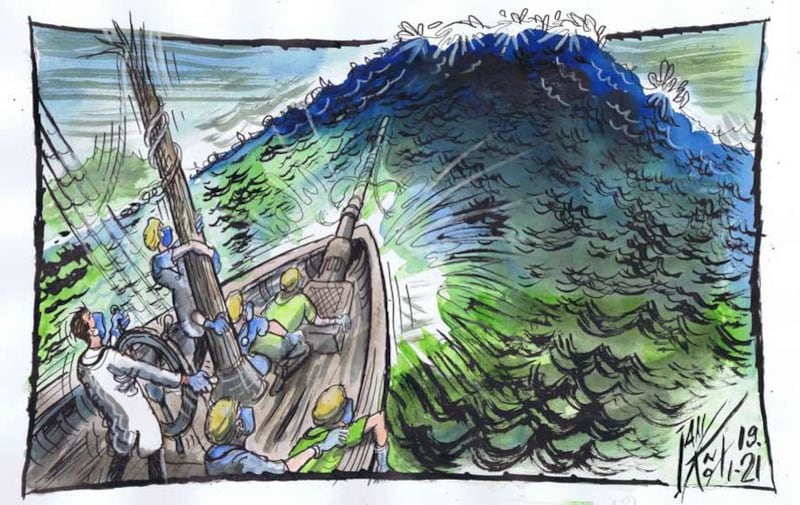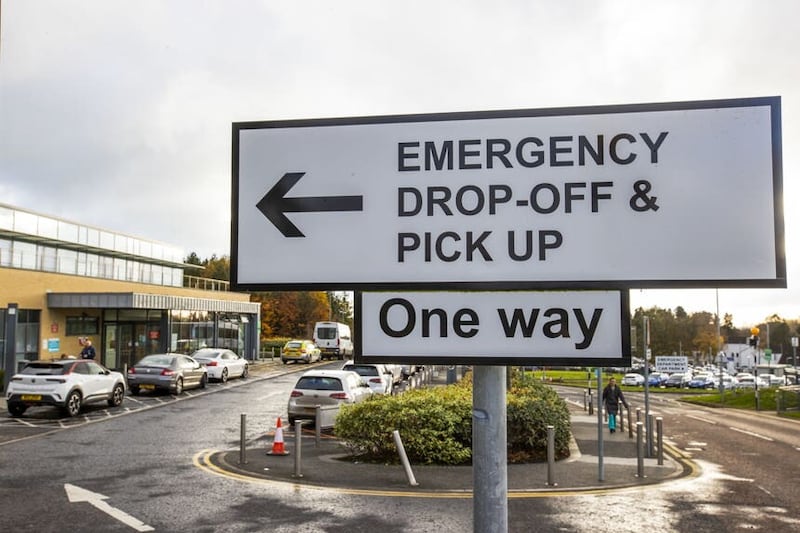DOCTORS fear they could be held responsible for "unlawful killing" of patients during the Covid surge due to limited resources - and are seeking immunity from prosecution similar to that granted in New York.
Dr Tom Black, who heads up the Northern Ireland council of the British Medical Association (BMA), told The Irish News he was approached by some of the north's most senior consultants who expressed concerns about "getting the blame" ahead of an expected peak in hospital admissions this week.
A letter was sent to health minister Robin Swann by the BMA at the weekend requesting temporary emergency legislation to protect staff at risk of "inappropriate legal challenge" when they are treating Covid-19 patients in "good faith and in circumstances beyond their control".
In New York, the Emergency Disaster Treatment Protection Act (2020) granted temporary immunity from civil and criminal liability to the city's healthcare professionals when hospitals became overwhelmed with coronavirus patients last year.
Dr Black said levels of Post Traumatic Stress Disorder (PTSD) are now "very, very high" among medics working across the north's intensive care units.

"There’s real concerns among doctors that we will be held legally responsible and, as the letter states, 'feel vulnerable to the risk of prosecution for unlawful killing'," he said.
Read More: 'Mass trauma' experienced by nurses during pandemic as unions warn of top staff quitting
"As one of my senior doctors said to me a few nights ago: 'We’re working really hard, we’re doing our very best in the circumstances and when something goes wrong, we get the blame'.
"The key is, healthcare workers are normally in position to do the best they can for the person in front of them.
"Our concern here is that if there is a mismatch between the healthcare resources and the needs of patients we have to withhold or withdraw from one patient to get to another who is more likely to benefit from it.
"In that situation, we would be concerned that we might become the subject of legal proceedings."
The Irish News asked Mr Swann to respond to the medics' request.
A Department of Health spokeswoman said they are "aware of this request and will give it full consideration".
"The HSC and department have and will continue to provide appropriate indemnity support for staff fulfilling their responsibilities in support of the pandemic response," she added.
While Covid-related hospital admissions are expected to peak this week, the greatest pressure on ICU is expected next weekend.
Dr Black said numbers will be different for each hospital, with "Antrim, Newry and Craigavon currently getting it tough".
"You only have to look at the numbers of patients with the infection last week to tell us what’s going to happen next week," he said.
But the BMA chief added he was hopeful the rollout of the vaccination programme will significantly reduce transmission - and hospital cases - by early March.
"This week we’ll probably see the peak for the wards. Next weekend and the following week we’ll see the peak for ICU units. The vaccination programme will lead to a decrease in transmission and that will show up as a decrease in hospital admissions - but that’s probably the third week in February before we see the benefits of that.
"Subsequent to that, I don’t think ICU or deaths rates will start decreasing until later in February.
"So if we can get down through the vaccination cohort groups - the over-80s, the over 70s, the over-60s and the high-risk patients - then we'll start seeing improvements through March. And once we get to March/April, assuming we don’t get another nasty variant of the virus, we will see light at the end of the tunnel."
He said that doctors across the north remain "angry" about the UK government led decision to delay the rollout of the second dose of the Pfizer vaccine, saying "they feel they have been asked to step into the frontline without optimum immunisation".
"The four main problems we have among our members is that: physically they’re knackered, mentally they’re worn out, they’re now worried about the legal implications and the thing that underpins everything in terms of trust and confidence is the failure to give the second Pfizer vaccine. Right through the weekend, I've received continual calls. Unless the four governments change their minds, we can’t do anything."
With the current six-week lockdown restrictions due to end on February 6, the medical trade union leader insists the measures must be extended beyond then,
"I think if we maintain as strict a lockdown as we can and have the vaccine in place then we can move forward. We need to keep the lockdown in place and hold our nerve."








